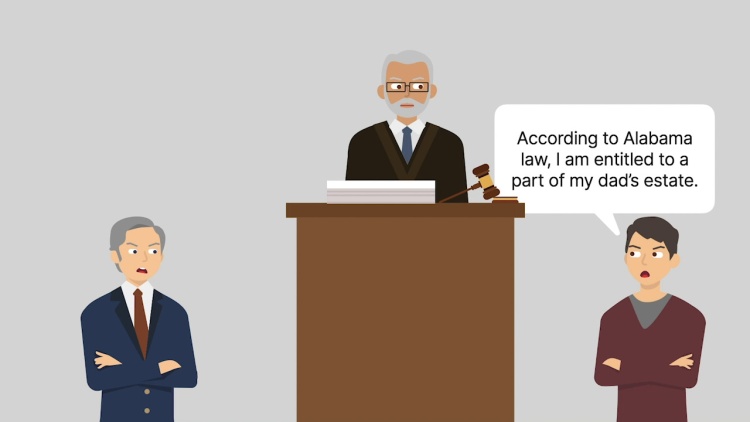Gray v. Gray
Alabama Supreme Court
947 So. 2d 1045 (2006)

- Written by Christine Raino, JD
Facts
When John Merrill Gray II (John) married Mary Rose Gray, he had two children from a prior marriage, Robert B. Gray and Monica L. Muncher. Before John and Mary’s son, John Merrill Gray III (Jack), was born, John executed a will in which he devised his entire estate to Mary. Subsequently, John and Mary divorced and executed a property settlement in which John agreed to place one-half of all assets he inherited from his mother into a trust for Jack. John died without changing his will, and the bequest of his estate to Mary was revoked by statute because they were divorced. When the executor of John’s estate, William Terry Gray (Gray) (defendant), sought to probate the will, Jack petitioned to receive a share of the estate as an omitted child under Ala. Code § 43-8-91 (the omitted-child statute). Subsection (a) of this statute allowed an omitted child to receive his or her intestate share of the estate unless one of the following three exceptions applied: (1) exclusion from the will appeared to be intentional; (2) the testator had one or more children living when the will was executed, devised the entire estate to the other parent of the omitted child, and omitted all of the children; or (3) a transfer to the child made outside the will is shown to have been intended as a substitute for a devise by will. Gray filed a motion to dismiss Jack’s petition, asserting that Jack was not entitled to an intestate share of the estate because the exceptions under subsections (2) and (3) applied. Jack asserted that subsection (2) was not intended to apply to situations in which the testator’s children living at the time of executing the will were from a prior marriage and the will was executed during a subsequent marriage but before conceiving the omitted child. The probate court granted Jack’s petition, and Gray appealed.
Rule of Law
Issue
Holding and Reasoning (See, J.)
Dissent (Lyons, J.)
What to do next…
Here's why 907,000 law students have relied on our case briefs:
- Written by law professors and practitioners, not other law students. 47,100 briefs, keyed to 996 casebooks. Top-notch customer support.
- The right amount of information, includes the facts, issues, rule of law, holding and reasoning, and any concurrences and dissents.
- Access in your classes, works on your mobile and tablet. Massive library of related video lessons and high quality multiple-choice questions.
- Easy to use, uniform format for every case brief. Written in plain English, not in legalese. Our briefs summarize and simplify; they don’t just repeat the court’s language.





